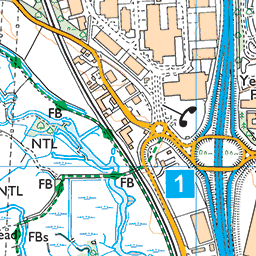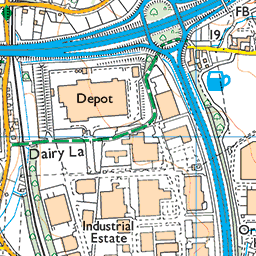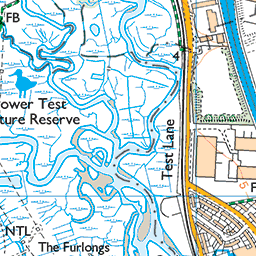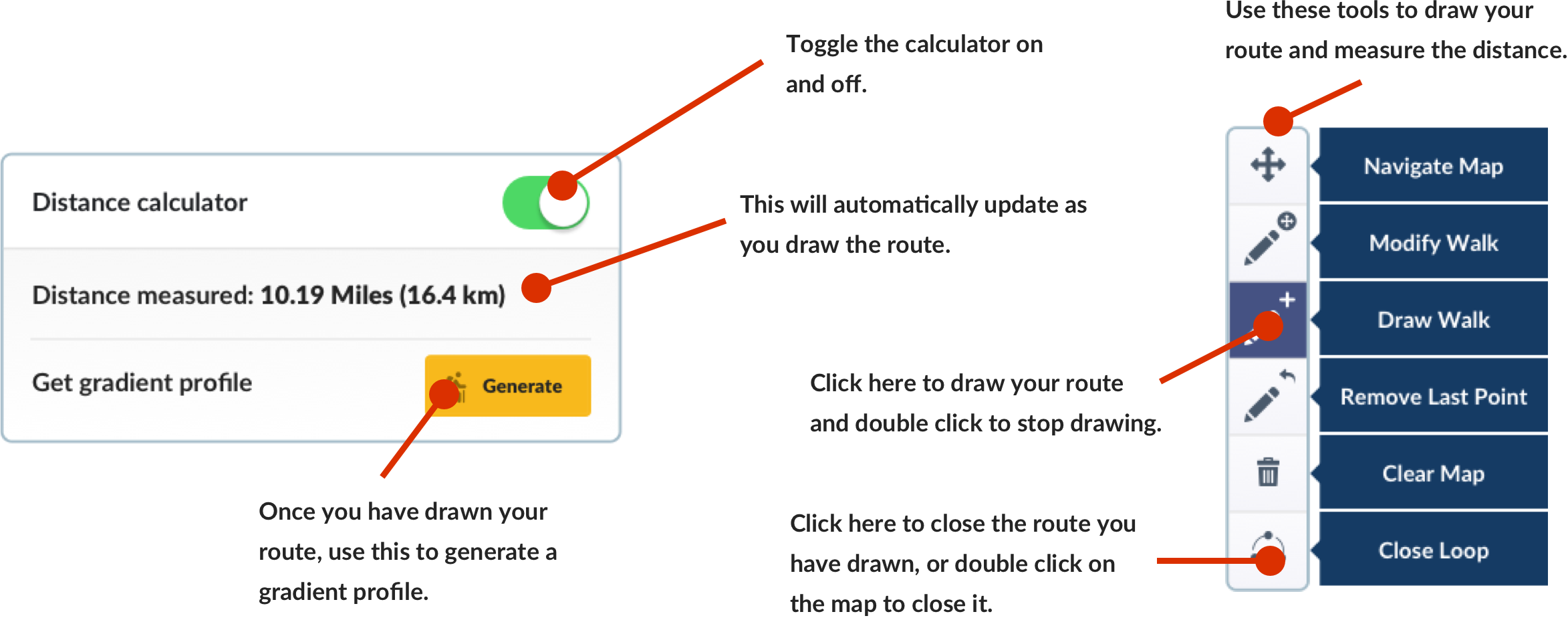Hadrian's Wall Path Map and Information
See the map and find answers to the most common questions about the Trail below
Following the historic UNESCO World Heritage Site of Hadrian’s Wall from coast to coast, the Hadrian’s Wall Path National Trail is an 84-mile (135 km) pathway passing through a diverse landscape where magnificent moorland gives way to rolling fields and there are dozens of sights to behold.
Use the Map Filter to see places to visit and where to stay along Hadrian's Wall Path. View information on the map by ticking the boxes in the Map Filter.
Wedi’i ychwanegu at eich Cynllunydd Taith isod
Cyfrifiannell pellter
Customise your trip with our filters.

Ewch o un opsiwn i’r llall isod i ddangos y marcwyr sydd ar gael.
Cyffredinol Marchogaeth BeicioLlety
Pwyntiau o ddiddordeb
Gwasanaethau
Llwybrau
Llety
Pwyntiau o ddiddordeb
Trafnidiaeth
Llety
Pwyntiau o ddiddordeb
Trafnidiaeth


















Mae'r proffil o uchder eich teithlen yn cael ei greu pan fyddwch yn defnyddio’r cyfrifiannell pellter (uchod) i dynnu llinell.

Select the blue arrow tabs below for more details.
The Trail is 84 mile (135 km) long. If you are an experienced walker then we generally recommend allowing 6 or 7 days to complete the whole Trail, although you might want to allow some extra time to visit some of the Roman sites that you pass. They all have museums with interpretive displays and they also provide refreshments.
Anyone who is reasonably fit should be able to walk the Hadrian’s Wall Path although it is not an easy walk. Some guidebook and magazine articles have described the Trail as “not a challenge walk” but it is more difficult than many people imagine it to be. The 23 mile (37 km) section between Chollerford and Birdoswald is a switchback with lots of short climbs and descents; it is a bit like walking along the coast. The majority of the path has a natural grass surface; only the Tyneside section is tarmac.
Navigation is not difficult. The route is very clearly marked with the acorn symbol as well as way marking arrows. Even poor visibility in the higher central section should not present too many problems, here the path is alongside either Hadrian’s Wall itself, a modern field wall or the humps and bumps in the ground of archaeological earthworks. It is always a good idea though, to track your progress on your guidebook or map.
Work continues to make the trails accessible to more people.
Our Access for all page brings together access information about the National Trails including easy access walks and sources of further information.
Bus and Metro services link Newcastle International Airport and Newcastle Ferry Port to the start of the Trail at Wallsend. It is also possible to catch a bus from the ferry terminal directly to the start of Hadrian’s Wall Path at Wallsend.
Hadrian’s Wall Path is well-connected for visitors arriving by train. Northern Rail operates the Newcastle to Carlisle ‘Tyne Valley’ line with strategic stops at Corbridge, Hexham and Haltwhistle, which connects with the seasonal AD122 Hadrian’s Wall Bus service. The start of the Trail is a 10 minute Metro journey from Newcastle Rail Station.
For rail information please see www.nationalrail.co.uk. For Metro information please visit www.nexus.org.uk/metro
The seasonal AD122 Hadrian’s Wall Bus service is the main route serving Hadrian’s Wall. The bus currently operates daily. Visit https://www.gonortheast.co.uk/ad122/ for times and fares.
Both ends of the Trail (Carlisle in the west and Newcastle upon Tyne in the east) have inter-city rail links and National Express coach services.
You can find up-to-date public transport information including a journey planner at www.traveline.info
If you are planning to drive, the A69 between Newcastle and Carlisle runs parallel to Hadrian’s Wall Path (approximately 2-5 miles south) and is the main access route. You can join the A69 from the western side of the country along the M6 from the south and the A74 (M) from Glasgow to Carlisle.
Access from the eastern side of the country is along the A1 (M) to Newcastle, with the option of using the A68 (which links Edinburgh and Darlington) to reach the central part of the Path.
There are plenty of campsites along the Trail and they can be viewed on the Interactive Map.
If you plan to camp please note in England and Wales, there are normally no rights for national trail users to wild camp along the way – so seeking the landowner’s permission is recommended.
There are several companies that will arrange to move your bags for you, help you plan your trip, or arrange a full package.
You can find further details on the Walking Holiday Companies page.
We recommend walking between May and October when the ground is normally dry and the risk of erosion and damage to the underlying archaeology is considerably reduced. During this period the accommodation is open, bus services are running and the Trail passport is operating. The Trail and Wall are very popular; if you want to avoid the crowds try to avoid the main school holidays (end of July through August).
We recommend that you take a map and/or guidebook with you, or a copy of the walk leaflet if you are doing a shorter walk. You may also find a compass useful.
If you are walking solo you may want to tell somewhere where you are going as there can be mobile black spots along the Trail. Ensure your phone is fully charged before setting off.
Weather in the UK can be changeable so it’s wise to be prepared. You’ll need good footwear, waterproofs and warm layers. Take plenty of water and just in case, pack a few plasters for your feet. In the summer you may need midge repellant and sun cream.
It’s up to you, different guidebooks describe it in different directions however the official guidebook describes the route from east to west.
Prevailing wind? Heading west from Wallsend you will be walking into it but in the summer months it is unlikely to be a concern. Also, consider whether you want to finish your walk in the city, or on the quiet Solway estuary which is a great place to reflect on your achievement. Look carefully into the transport arrangements at the end of your walk; some people find that if time is short then it is might be easier to continue on their journey home from Newcastle.
Away from Newcastle and Carlisle the mobile phone reception varies with some providers being better than others. The higher central section of the Trail has the weakest reception and at times it can be none existent. More and more places, including pubs, cafés and even village halls, provide Wi-Fi access.
The UK is unique in having a network of paths that the public can use, this is the Public Rights of Way network. You can see these paths on Ordnance Survey maps.
National Trails are signed with an acorn symbol and/or the Trail name which you will see on stiles, gates and signposts. This is the symbol used by all the English and Welsh National Trails.
As you are walking along the Trail you will also see waymarkers pointing to other paths. You can use the public rights of way network to leave the Trail to explore places of interest, reach your accommodation and find places to eat and drink.
You will often find a coloured arrow on signs which indicates the status of that section of path. The most common are yellow arrows which are footpaths and blue which are bridleways.
The Solway coast between Dykesfield and Drumburgh, and between Port Carlisle and Bowness-on-Solway is at sea level. These areas can be affected by tidal flooding. You must be aware of when this is likely to occur and allow sufficient time for a safe walk. You can find out more in a number of ways:
PDF download
Notice boards
Provided for your safety by the National Trail project, located beside the cattle grid at Dykesfield and at the eastern entrance to Bowness-on-Solway village. The boards show the current month’s tidal predictions for the port of Silloth.
Online
Tide times can be found on the BBC website.
A GPX file can be downloaded from the Trail Holidays page (the button is below the map).
There is a good choice of accommodation close to the Trail and it can be viewed on the Interactive Map above or on the Trail Holidays page.
Download and print a list of accommodation for each section of the Trail.
The Wall is popular and accommodation close to the Trail fills up quickly. We strongly recommend that you book in advance. Most people start their walk at a weekend; you might find it easier to book accommodation if you start your walk on a week day.
Thanks to ev eryone who has supported us by buying the Trail Passport, certificates and badges.
eryone who has supported us by buying the Trail Passport, certificates and badges.
For conservation reasons, the Passport season runs each year from Easter until the end of October.
Passports are available to purchase on-line now from the Trail Gift Shop, as well as Segedunum, The Robin Hood Inn, The Sill National Landscape Discovery Centre, Walltown Country Park, and Bowness House Farm and the Kings Arms Inn Bowness-on -Solway.
Happy walking!
Visit our Walking Holidays Page for holiday inspiration for the Hadrian’s Wall Path.
There are some great walks to enjoy along parts of the Hadrian’s Wall Path National Trail. Find the perfect walk for you in the Circular & Linear Walks section.
The official guidebook and map for the Trail are available from the Trail Gift Shop along with a wide range of gifts and other merchandise.
You can find a list of Ordnance Survey maps on the trail’s map page.
Completion Certificates and Achievers’ badges are available from the Trail Gift Shop.
Work continues to make the trails accessible to more people.
Our Access for all page brings together access information about the National Trails, including easy access walks and sources of further information.
Feeling inspired? Build a bespoke itinerary and start planning your visit to this great National Trail here.
If you have feedback or a question about the Hadrian’s Wall Path, please contact the Trail Manager.
